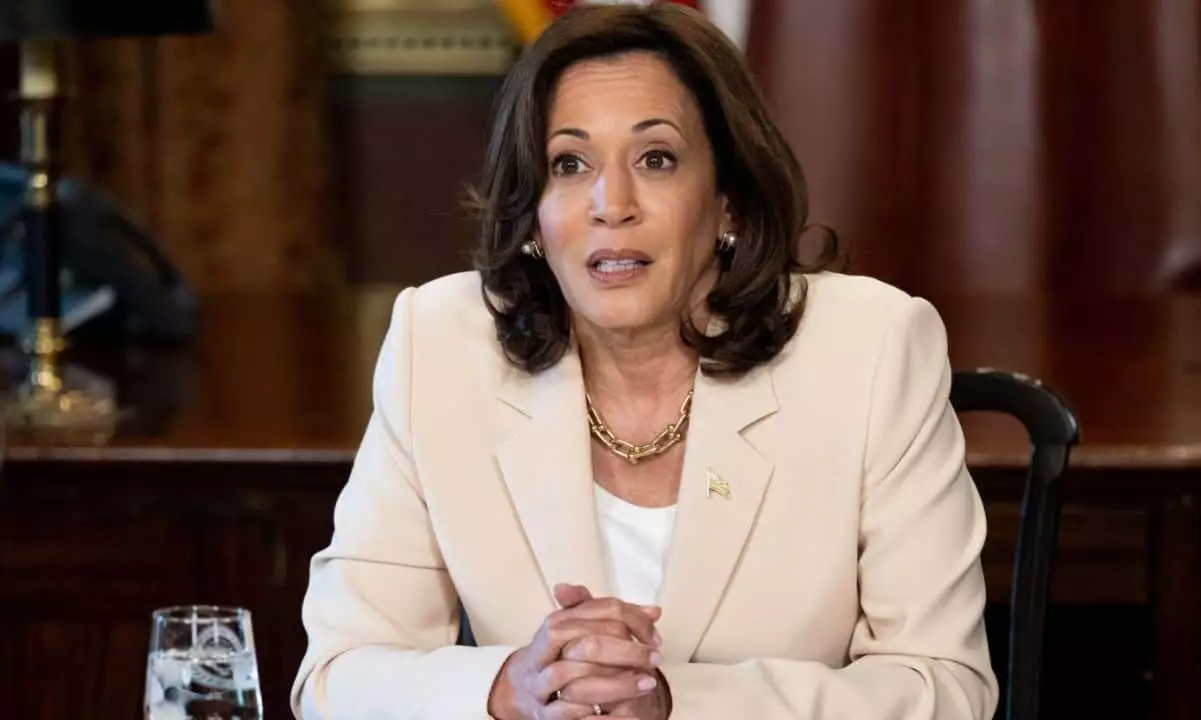In a bold statement aimed at enhancing her connection with potential voters, U.S. Vice President Kamala Harris has asserted her commitment to develop digital asset policies that aim to protect cryptocurrency investors, particularly black men. This statement emerged against the backdrop of a calculated political strategy, as Harris and her campaign recognize the importance of appealing to men of color ahead of the forthcoming presidential elections. Notably, the Harris campaign highlighted the statistic that approximately 20% of black Americans engage with cryptocurrency, reinforcing the importance of this demographic in electoral dynamics.
Harris’s promise to establish a comprehensive regulatory framework resonates with a broader narrative surrounding access to financial services, particularly for historically marginalized communities. Her acknowledgment of the barriers that black individuals have faced in accessing affordable financial services is crucial, as it parallels the growing importance of new technologies, including blockchain and cryptocurrencies, in democratizing financial opportunities. However, it is alarming that the specifics of this regulatory framework remain nebulous, leaving many critics and observers questioning the feasibility and sincerity of her intentions.
Despite the strong message regarding support for digital asset investors, Harris’s communication during her October 14 announcement lacked concrete details regarding the proposed policies. The absence of key terminology associated with the cryptocurrency world, such as “blockchain” or “digital assets,” raises eyebrows about her team’s understanding and capability to address the complexities of this rapidly evolving sector. Critics, including Bitcoin Magazine’s Nikolaus Hoffman, have responded negatively, branding Harris as an inadequate candidate for endorsing cryptocurrency due to her lack of specificity on these issues.
Comparatively, her political adversary, Donald Trump, has made significant strides in courting the crypto community by providing specific policy proposals. Trump’s entry into the crypto debate has transformed remarkably since his previous criticisms of digital assets, as he declares his ambition to become the “Crypto President.” With his recent initiatives, such as establishing a Bitcoin advisory council and demonstrating a tangible interest in purchasing goods with crypto, Trump has skillfully repositioned himself within the crypto discourse, capturing the attention of crypto enthusiasts who are searching for a candidate that genuinely understands the industry’s potential.
It is essential to consider the broader implications of Harris’s pledge amidst a complex political landscape. Historically, the Republican party has not been favored by many within the cryptocurrency space, as some critics view their policies as oppressive. However, Trump’s unexpected pivot towards a pro-crypto stance complicates this narrative, leaving Harris’s campaign to navigate the challenging terrain of both appealing to potential voters and combatting perceptions of being anti-crypto—a tag that has lingered since Harris joined the Biden administration.
Amid these developments, the Biden administration’s approach to crypto markets has faced scrutiny, particularly from Gary Gensler, the head of the Securities and Exchange Commission. Gensler’s strong regulatory posture has sparked disappointment and concern within the crypto community, as many label his approach as overly restrictive. This administrative context underscores the urgency for Harris to position herself as a champion for digital asset advocacy without alienating potential allies within the broader financial sector.
As the electoral landscape shifts, Harris’s commitment to supporting black cryptocurrency investors shines a light on pressing issues of equity and representation within the financial technology space. However, the ambiguous nature of her proposed regulatory framework and the contrasting approach of her political rival present a complex challenge. In this high-stakes environment, clarifying her intentions and implementing actionable policies will be crucial in establishing credibility within the crypto community.
Ultimately, Harris’s ability to effectively communicate and demonstrate her concrete plans for safeguarding crypto investors could be pivotal, not only for her political future but also for the future of cryptocurrency policy in the U.S. With such a transformative potential at stake, both sides of the political aisle must consider the implications of their choices in the evolving discussion of digital assets.















Leave a Reply